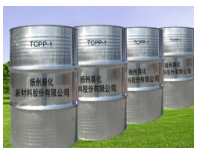Flame retardant masterbatch (bromine / halogen system) is also called flame retardant masterbatch, which is one of the flame retardant products with excellent performance in plastics, rubber and other resins. Flame retardant masterbatch (masterbatch) is a kind of granular product made by organic combination, modification and synergistic action of various flame retardant components on the basis of flame retardant, and mixing, extrusion and granulation by twin-screw or three-screw extruder. Different from the flame retardant, the flame retardant masterbatch has many advantages, such as easy to add in the resin, clean and sanitary, high flame retardant efficiency, small amount of addition, little impact on the mechanical properties of the resin, and it is not easy to have delamination, pattern, precipitation and other adverse phenomena after adding, saving labor, material cost and time. Generally speaking, the dispersion, fluidity, compatibility with resin, thermal stability and weather resistance of flame retardant masterbatch in resin are much better than those of ordinary flame retardant. In addition, the flame retardant efficiency and performance (cost performance) of properly formulated flame retardant masterbatch are much better than that of ordinary flame retardant. Therefore, at present, flame retardant masterbatch has become one of the best choices for flame retardant plastic products to meet the fire protection requirements, and has become an effective substitute for flame retardant powder.

PP plastic flame retardant is made of imported materials. It is a new type of reactive flame retardant with Br (bromine), P (phosphorus) n (nitrogen) and other elements. This paper mainly introduces the following three kinds:
1. Brominated flame retardant.
Most brominated flame retardants will decompose at 200-300 ℃, which is exactly the decomposition temperature range of polypropylene (polypropylene flame retardant masterbatch). Therefore, when polypropylene (PP Flame Retardant Masterbatch) is decomposed by heat, brominated flame retardants will also decompose, and can capture the free radicals generated by the degradation reaction, thus delaying or terminating the chain reaction of combustion. At the same time, the HBr itself is a kind of refractory gas, which has a high density and can cover the surface of the material, which can block the combustible gas on the surface and also inhibit the combustion of the material.
The main disadvantage of brominated flame retardants is to reduce the UV resistance stability of the flame-retardant substrate, and generate more smoke, corrosive gas and toxic gas during combustion, which limits its application.
2. Phosphorus flame retardant.
The function of phosphorus flame retardant is to dehydrate and carbonize the polymer during its initial decomposition. This dehydration and carbonization step must depend on the oxygen-containing group of the polymer itself, and for the polymer with oxygen-containing group of its own structure. They have better flame retardancy. For polypropylene, because its molecular structure has no oxygen-containing group, the flame retardant effect is not good when phosphorus flame retardant is used alone, but if it is compounded with (0h) 3 and Mg (OH) 2, the synergistic effect will be produced, so as to obtain good flame retardant effect.
3. Phosphorus nitrogen flame retardant.
Phosphorus nitrogen flame retardants are also called intumescent flame retardants. Polymers containing such flame retardants can produce a uniform layer of carbon foam when heated, which can resist heat, oxygen and smoke, and prevent droplets from occurring. Therefore, it has good flame retardancy. Intumescent flame retardant system is generally composed of three parts: acid source (dehydrating agent), carbon source (carbon forming agent) and gas source (nitrogen source, foaming source). Intumescent flame retardant mainly acts as flame retardant in the condensed phase by forming porous carbon layer. Phosphorus nitrogen flame retardant has the advantages of halogen-free, low smoke and low toxicity.